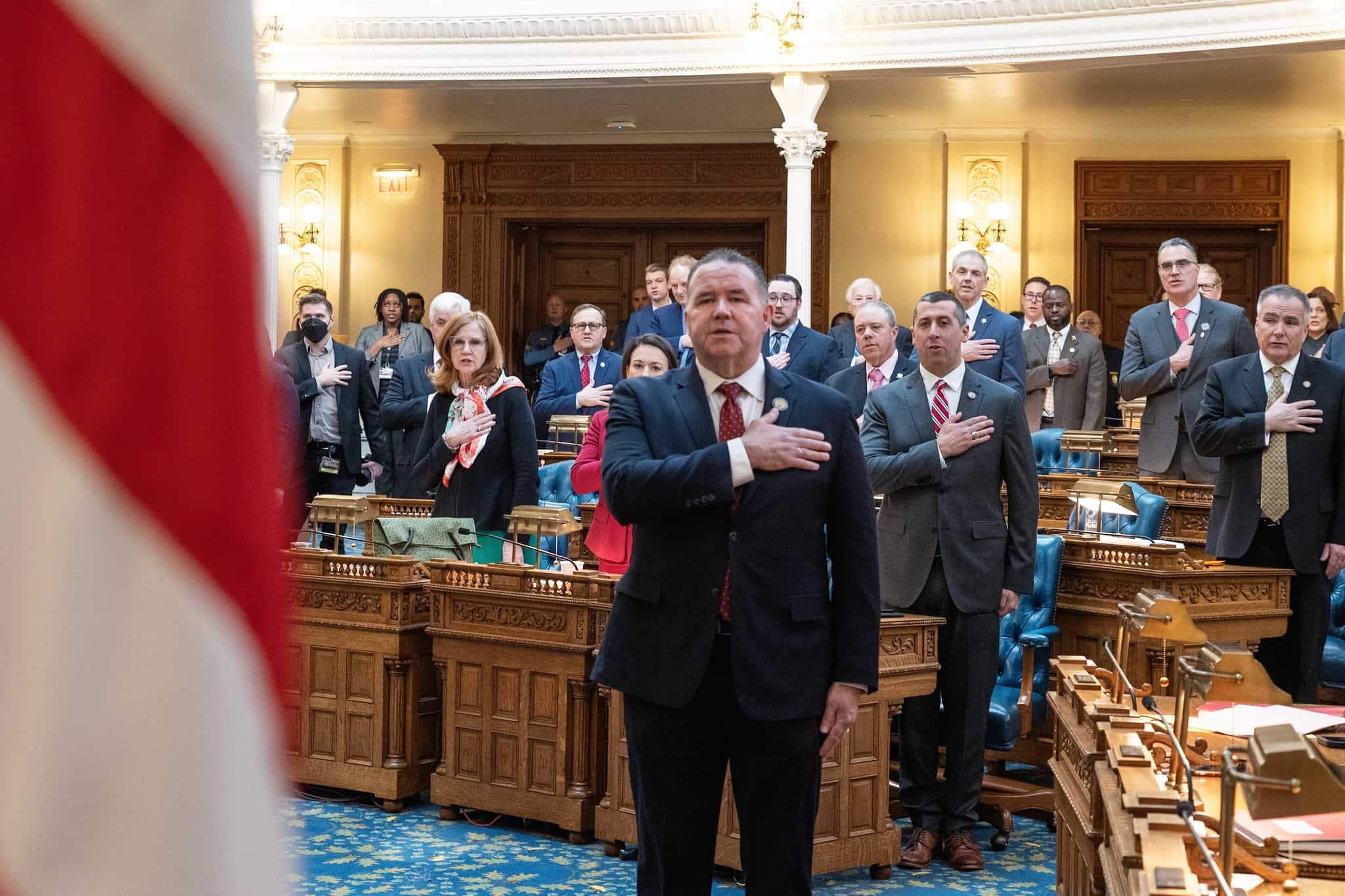“To the surprise of many pundits and pollsters, New Jersey is not a solid blue state. Voters in 12 of the 21 counties elected Trump,” Sauickie (R-Ocean) said. “In fact, New Jersey’s 14 electoral votes would have gone to Trump if a law championed by Democrats over a decade ago was in effect. Many of the lawmakers who voted to change how the Electoral College works in New Jersey are still here today. I wonder how they feel about their vote now.”
On Jan. 13, 2008, New Jersey became one of the first states to sign the National Popular Vote act into law. Then-Gov. Jon Corzine signed the bill adding New Jersey to an interstate agreement that requires member states to elect the U.S. president based on the national popular vote. No matter who receives the most votes in New Jersey, the state’s electoral votes would go to the presidential slate that wins the popular vote nationwide.
Trump currently leads the popular vote count with 75,880,324 votes to Harris’ 72,868,768, making him the first Republican presidential candidate to win the popular vote in the last two decades. Had New Jersey’s 2008 law been in effect, Trump would have been the first candidate from either party to benefit.
“This law is a silly one. New Jersey’s electoral votes should reflect how New Jersey voted, not the nation. Those who believe they know what is in everyone’s best interest, despite what the voters of New Jersey say, diminish democracy. Hopefully, this election will serve as a wake-up call,” Sauickie said. “The current administration’s costly agenda that cuts funding to schools, raises taxes, subsidizes Big Wind, and makes living in New Jersey unaffordable is being rejected by voters.”
Under the law, the interstate agreement only goes into effect when states with a majority of the electoral votes (270 of the 538) have passed similar legislation and joined the compact. To date, 16 states, including California, Oregon, Colorado, Illinois, New York, and Massachusetts, and Washington, D.C. have joined, which brings the total electoral votes pledged to 209. To become effective, the law needs states with 61 additional electoral votes to join.
“Not surprisingly, the states that have committed to the interstate compact are some of the bluest,” Sauickie said. “Many of the hot-button issues that motivate Democrats to vote are not applicable in New Jersey. However, affordability, accountability and public safety are incredibly relevant to residents and that’s why New Jersey continues to become less blue.”
